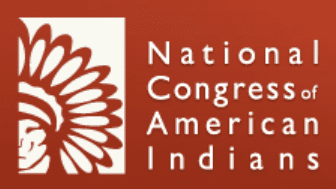The National Indian Council on Aging (NICOA) cultivates dynamic partnerships that provide vital resources, information and financial support to our organization. We rely on our partners to support our mission to advocate for improved comprehensive health, social services and economic well-being for American Indian and Alaska Native elders.
These partnerships dramatically enrich our efforts and enhance our impact in the lives of Native elders and their communities. Our progress depends on the strength of our partnerships. Their support has been invaluable to us, and we are truly grateful for their partnership. Together we can ensure that every elder has access to the services and resources necessary to age independently, with dignity, and in their chosen community.
Thank you to the following partnerships and collaborations; we could not do this without their ongoing commitment to NICOA.
AARP (The American Association of Retired Persons) is the country’s largest nonprofit, nonpartisan organization that helps people chose how they live as they age. They focus on priorities for families such as health security, financial stability, and personal fulfillment. Their commitment to diversity, equity and inclusion is demonstrated by their support of NICOA as a conference sponsor and partner on webinars and other important educational endeavors.
The Alzheimer’s Association (AA) partners with NICOA to promote Alzheimer’s awareness and care and support resources to American Indian and Alaska Native individuals from over 570 tribes across the country. The AA is committed to ending Alzheimer’s disease and related dementias (ADRD). It is the leading voluntary health organization in Alzheimer’s care, support, and research. Collaboration aimed at raising awareness of ADRD in Indian Country has led to presentations at the NICOA conference and a series of educational webinars led by an AA Native community educator.
The American Society on Aging (ASA) is a nonprofit with a mission to drive discourse, education, and advocacy for change as it relates to inclusivity, anti-ageism and equity for older adults.
Made up of six national organizations representing a growing majority of millions of older people throughout the U.S., the Diverse Elders Coalition (DEC) advocates for policies and programs that improve aging in racially and ethnically diverse communities. NICOA has been a longtime member of the organization and works with the DEC on a variety of issues, including contributing to a curriculum to aid health care and social service providers in meeting the needs of diverse family caregivers.
The International Association for Indigenous Aging (IA2) focuses on the issues of culturally appropriate resources for Indigenous elders with Alzheimer’s disease and brain health. NICOA has partnered with the IA2 on a variety of projects. They are a prominent presence at NICOA’s conferences, where they hold multiple trainings and listening sessions.
The Leadership Council of Aging Organizations is a coalition of national nonprofit organizations concerned with the well-being of America’s older population and committed to representing their interests in the policymaking arena.
The National Congress of American Indians (NCAI) is the oldest, largest and most represented American Indian and Alaska Native organization serving the broad interests of tribal governments and communities. NICOA works in partnership with NCAI to ensure that the voices and concerns of elders are represented and supported at the national level. NICOA’s board chairperson serves as the chairperson of the NCAI Elder Committee.
The National Consortium on Aging Resources for Senior’s Equity was established by the Administration for Community Living in 2012 and is composed of five national minority aging organization partners, each of whom represents a major racial and ethnic minority elder population: the MHP Salud, the National Asian Pacific Center on Aging (NAPCA), the National Resource Center on LGBT Aging (SAGE), the National Caucus and Center on Black Aging (NCBA) and NICOA.
The consortium works as an interconnected resource center to decrease the prevalence of disparities among racial and ethnic minority and LGBTQ elders, their families and caregivers, by providing technical assistance to the Aging Network.
The National Council of Urban Indian Health (NCUIH) is a resource center dedicated to improving the health of American Indians and Alaska Natives living in urban areas. They provide advocacy, education, technical assistance, training, leadership, and connection to urban Indian organizations who share their mission. NCUIH has provided expertise and guidance on urban Indian health needs to NICOA on an ongoing basis.
The National Resource Center on Native American Aging (NRCNAA) is committed to identifying Native elder health and social issues. With education, training and technical assistance, NRCNAA assists in developing community-based solutions to improve quality of life and delivery of related support services to the Native aging populations. NRCNAA partnered with NICOA in our creation of the NICOA Compass.
Partnerships for Native Health is a research program housed within the Institute for Research and Education to Advance Community Health (IREACH) at Washington State University. Partnerships for Native Health is one of the largest research organizations in the nation devoted to the health and healthcare of American Indians and Alaska Natives. They took part in the NICOA Conference in 2021 and invited members to assist in developing a research protocol to promote the participation of Native people in Alzheimer’s disease research.
USAging represents and supports the national network of Area Agencies on Aging and advocates for Services for Native Americans (Older Americans Act Title VI) that help elders and people with disabilities live with optimal health, well-being, independence and dignity in their homes and communities. USAging has contributed to NICOA conferences and partnered with NICOA in the creation of the NICOA Compass.















